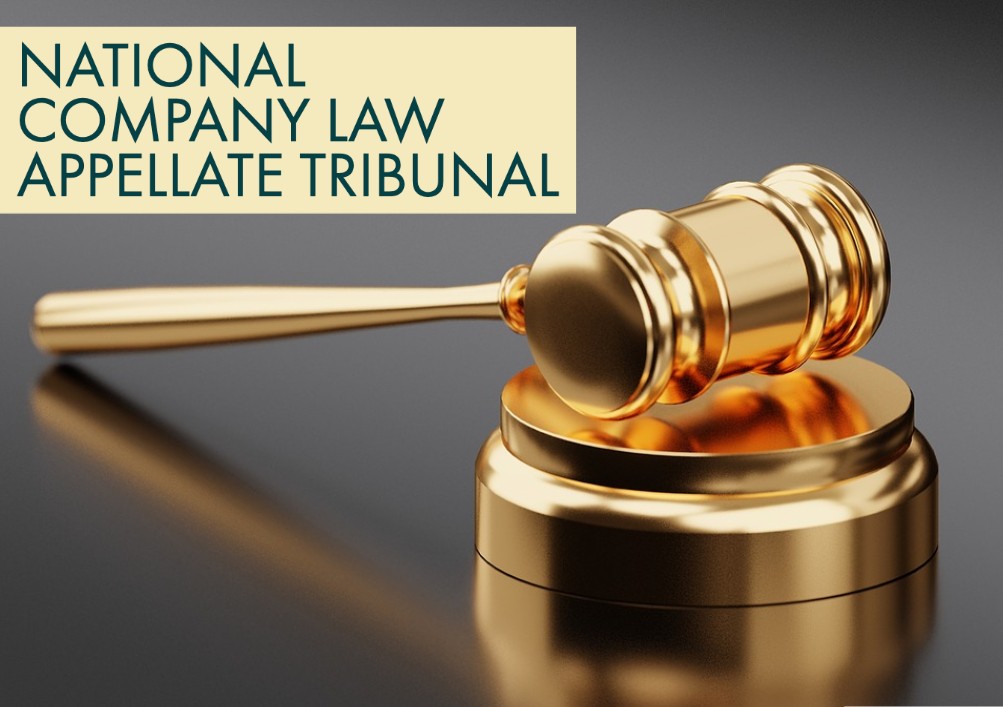Failure of NCLAT as first appellate authority to look into vital aspect of matter vitiates its order, especially when NCLT recorded specific finding of fact on same: Supreme Court

Read Judgment: SVG FASHIONS PVT. LTD. vs. RITU MURLI MANOHAR GOYAL & ANR.
Pankaj Bajpai
New Delhi, March 30, 2022: Finding that the NCLAT completely overlooked the pleadings revolving around the letter submitted by the operational creditor and the six cheques which were returned dishonoured attributable to the corporate debtor, the Supreme Court has set aside the order of NCLAT and remanded the matter back for a fresh consideration.
A Justice V.Ramasubramanian and Justice Hemant Gupta therefore observed that the failure of the NCLAT as the first appellate authority to look into a very vital aspect, vitiates its order, especially when NCLT has recorded a specific finding of fact.
The observation came pursuant to an appeal by the operational creditor (SVG Fashions – Appellant) challenging the order, whereby of the National Company Law Appellate Tribunal (NCLAT), reversed the order of ‘Admission’ passed by the National Company Law Tribunal (NCLT) and held that their application u/s 9 of the Insolvency and Bankruptcy Code, 2016 (IBC) was barred by limitation.
Going by the background of the case, the appellant filed an application u/s 9 of IBC against M/S Arpita Filaments Private Limited, contending inter alia: that the corporate debtor started having business dealings with them from 2013; that they sold and delivered various fabrics to the corporate debtor; that the corporate debtor was irregular in making payments as per the bills; and that the demand notice issued by them u/s 8 of IBC r/w Rule 5 did not invoke any response.
Before NCLT, the corporate debtor raised four major objections, one of which was that the claim was barred by limitation. But NCLT found on the basis of a letter produced by the operational creditor that six cheques had been issued in favour of the operational creditor. These cheques returned dishonoured when presented for payment. The stand taken by the corporate debtor was that those six cheques were lost by the corporate debtor in March 2017 and that they had already issued “stop payment instructions” to the bank. The corporate debtor also claimed that the letter relied upon by the operational creditor was issued by Shree Adeshwar Textiles and that therefore, the operational creditor cannot rely upon the same to save limitation.
However, the NCLT overruled the objections and held that there was an acknowledgment of liability on the part of the corporate debtor and that therefore, the application was within the period of limitation. Consequently, the NCLT ordered the admission of the application u/s 9 of IBC and also declared moratorium in terms of Section 14. On appeal, the NCLAT held that the debt arose during the period from Aug 11, 2013 to Sep 02, 2013 and that the six cheques purportedly issued towards part payment of the liability having been issued on Dec 05, 2017, will not save limitation. Hence, the NCLAT reversed the decision of NCLT and dismissed the application of the operational creditor.
After considering the submissions, the Top Court found from the order of NCLAT that there was no discussion at all about the letter dated Sep 28, 2015, whereas, according to the operational creditor, the six cheques in question were handed over along with the letter dated September 28, 2015.
“The cheque numbers and the bank on which the cheques were drawn, given in the letter dated 28.09.2015 tallied with the particulars of those six cheques allegedly lost by the corporate debtor in March 2017. Though the first respondent herein clamed in his affidavit in reply that the corporate debtor had issued stop payment instructions, he conceded that the acknowledgment issued by the banker contained the date 01.01.2018”, added the Court.
Therefore, observing that the law as it has developed on the applicability of Section 18 of the Limitation Act and the circumstances, in which it would apply, have also not been examined by NCLAT, the Apex Court allowed the appeal and remanded the mater back to NCLAT for a fresh consideration.
Sign up for our weekly newsletter to stay up to date on our product, events featured blog, special offer and all of the exciting things that take place here at Legitquest.




Add a Comment